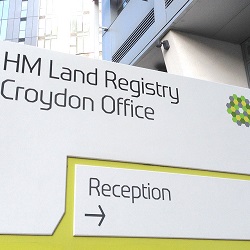
Land Registry: Application rejected
A vastly experienced conveyancer who backdated a deed of easement he had forgotten to prepare as part of a transaction has been barred from working in the profession.
Steven Diamond has been made subject to an order under section 43 of the Solicitors Act 1974, which means he cannot work for a law firm in future without the permission of the Solicitors Regulation Authority (SRA).
A regulatory settlement agreement published last week said he was working as a non-solicitor fee-earner for Cheltenham law firm Willans when instructed to prepare a deed of easement. This was to accompany a property purchase which completed on 21 October 2020.
At the time of completion, the easement had not yet been granted and the application to HM Land Registry (HMLR) to register the purchase said the deed would follow.
But it did not and HMLR raised a requisition about the missing deed in January 2022. “Mr Diamond failed to respond to this which resulted in the application to register the purchase being cancelled,” the agreement said.
In August 2022, the client contacted Mr Diamond as they were intending to remortgage their home and noticed that the property had not been transferred to them, nor had their mortgage been registered.
Mr Diamond finalised the deed and had the client and other party to it sign them. He then backdated the deed to 21 October 2020 and submitted this with the application for registration.
He accepted that this conduct made it “undesirable for him to be involved in a legal practice”.
In mitigation, Mr Diamond said he self-reported what he had done and that, save for delay, no harm was caused.
Further, he co-operated with the SRA, it was an isolated incident, he was of previous good character and had “shown remorse and insight”.
The SRA said Mr Diamond had acted recklessly: “Knowingly providing incorrect information in a deed of grant of easement to HMLR is not being ‘scrupulous about accuracy’ even if Mr Diamond genuinely believed that there was no practical difference to backdating the document given that the earlier date was the date which the parties had initially intended the grant of easement to take effect.
“A professional who was not acting recklessly would have ensured that the information that they provided to HMLR was accurate.”
He did not act in the best interests of his clients or in a way that upheld public trust and confidence in the profession.
“Mr Diamond has been in the profession for more than 30 years and should have known that it is wrong to backdate a document.”
He also agreed to pay the SRA costs of £300.












Leave a Comment